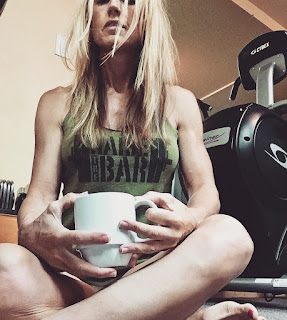Food Journals Can Help Us Get Back On Track Sooner Than Later
Keeping a food journal can be your best friend and accountability partner when learning how to implement a healthy nutrition program. It can also feel like a burden depending on your commitment level.
I have heard it all when it comes to food journals and the love/hate relationship caused when keeping track of every morsel. The problem is really not the food journal, but the issue of not wanting to be honest with ourselves. When life is going great and our program is on track, we gladly write down every healthy bite and proudly share eating habits producing positive results.
I have heard it all when it comes to food journals and the love/hate relationship caused when keeping track of every morsel. The problem is really not the food journal, but the issue of not wanting to be honest with ourselves. When life is going great and our program is on track, we gladly write down every healthy bite and proudly share eating habits producing positive results.
On the other side of the spectrum is feeling guilty eating off track and not wanting to write it down. We even convince ourselves somehow not writing it down means it didn't really happen. We tend to have moments of forgetfulness when we stop being mindful of our eating behavior.
The truth is regardless of what we want to include in our food journal, our body keeps an accurate record. You can run but your body will not hide the consequences of unhealthy choices.
Our food journal wants to know all the hidden secrets causing us to get off track. Are there food triggers? What's going emotionally and how is it affecting your day? These are important facts that could help figure out why we're eating unhealthy. Using the food journal as an emotional outlet helps resolve potential behaviors that may occur, and allows us to get back on track sooner than later.
The truth is regardless of what we want to include in our food journal, our body keeps an accurate record. You can run but your body will not hide the consequences of unhealthy choices.
Our food journal wants to know all the hidden secrets causing us to get off track. Are there food triggers? What's going emotionally and how is it affecting your day? These are important facts that could help figure out why we're eating unhealthy. Using the food journal as an emotional outlet helps resolve potential behaviors that may occur, and allows us to get back on track sooner than later.
Giving our food journal the stink eye for poor food choices is not where the blame should be placed. We are responsible for living a healthy or unhealthy life. If our fitness program is off track, we should be grown up enough to own it, plus the consequences of those choices. Keeping secrets from our food journal does nothing to help in a positive way. In fact, being dishonest with ourselves will prevent us from reaching our health and fitness goals.
We can come up with all kinds of reasons not to journal: too hard, waste of time, it’s not working, controls me too much, refuse to feel micromanaged, and the list goes on. Keeping a journal is truly a personal choice but can't be blamed when poor decisions are made. When it doesn't work, it's about the dishonesty occurring when we cheat on our journal.
Studies have shown increased health and fitness improvement when food and fitness journals are maintained. This is great news but they won't work if we're unwilling to use them correctly. Cheating on our food journal takes away it's ability to be used as a learning tool to help us correct unhealthy eating patterns.
Studies have shown increased health and fitness improvement when food and fitness journals are maintained. This is great news but they won't work if we're unwilling to use them correctly. Cheating on our food journal takes away it's ability to be used as a learning tool to help us correct unhealthy eating patterns.
We have the choice to view the food journal as friend or foe. If we view the food journal as a friend, our chances for improved health and fitness would significantly increase. Good friends help keep us accountable even when it's difficult to hear the truth. It may be hard to see our poor eating habits on paper but it's necessary to stand in our truth so we can make healthy changes. Friends should be able to offer constructive criticism and have it be accepted in a positive way without defensiveness.
The food journal is there to do that very thing: show you what has gone wrong, where you can improve, and ultimately help you make better choices for living a healthy lifestyle.
The food journal is there to do that very thing: show you what has gone wrong, where you can improve, and ultimately help you make better choices for living a healthy lifestyle.






Comments
Post a Comment